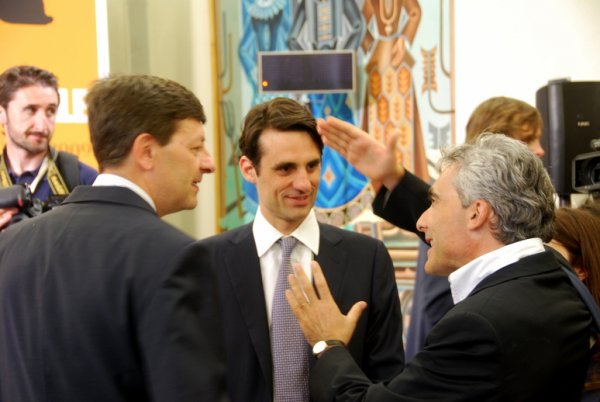Business Culture: The Business Experience
Business Style
In Italy, appearance is everything. The way you dress, your manners, and even the look of your presentation materials contribute to your bella figura—and can make a huge difference in your ability to forge relationships and secure business deals. It's crucial to pay scrupulous attention to details when doing business in Italy, as the impression you make will likely have more to do with whether your Italian counterparts accept your proposal than the aspects of the deal itself.
Italian business communities tend to be very closely knit, and Italians prefer to do business with people they know and trust, with whom they have a long history. The initial meeting or round of meetings will be more about getting to know you than making any serious business decisions; it may take your Italian counterparts a long time to give you an answer on your proposal. Be prepared to wait, and never communicate a sense of urgency, as this is usually taken as a sign of weakness, which can damage your credibility.
Keep your presentation materials clear, simple, and comprehensive. While Italians tend to make final decisions based on gut instinct, they will want to study every aspect of your deal during the process. Your Italian counterparts will likely not ask for clarification if they have trouble understanding any points, so be sure you have all written materials translated into Italian. In addition, pay attention to the look of all your materials—appearances are key in Italy, and it will be well worth your while to hire a professional graphic designer.
Relationship Building
Italians are energetic conversationalists who enjoy expressing enthusiasm for the topic at hand. In light conversation, don't be surprised if you are interrupted. Feel free to jump into lively conversation yourself—if you wait for everyone to pause and ask you for your thoughts, you will probably be waiting for a long time.
Italian art, architecture, food and wine, cinema, and sports are all perfectly acceptable topics for light conversation. Italy has a long and fascinating history and rich creative and culinary traditions. No matter your interests, you're sure to find plenty to talk about. There are a few topics that should be avoided in general, however: these include politics and religion—avoid bringing up the Vatican or the Pope—as well as taxes.
Avoid criticizing any aspect of Italian culture, even if the Italians around you are doing it themselves. Avoid asking about the profession, income, or family of someone you've just met—these are considered personal questions.
It's also a mistake to suggest that Italians from Northern, Central, and Southern Italy are the same. Each of these regions has a distinct cuisine and culture. To Italians, there is a large difference between regions, and many Italians have passionate opinions about which region is preferable. As a foreigner, it's best to avoid this conversation altogether.
Etiquette
The concept of bella figura doesn't just refer to dress in Italy—it encompasses your entire impression, of which manners are a big part. Italians take great pride in their manners, and will expect you to follow their social protocols. While it's impossible to be aware of everything, it's crucial to at least make an effort to display the elegant manners Italians appreciate.
Italian men and women commonly shake hands in business situations. The handshake should be firm and accompanied by direct eye contact and a friendly buon giorno (good morning) or buona sera (good afternoon or good evening). Women, and in certain regions men as well, will kiss each other lightly on the cheeks when greeting a friend or family member, and men may embrace lightly. When a man is shaking hands with a woman, the woman will often extend her hand first.
Italian is the language of business in Italy. Although many Italians are multilingual and may speak and understand French, Spanish, and English, it's still a good idea to hire an interpreter if nobody on your team speaks Italian. This is a courteous move as well as a practical one.
Italians leave an arm's length or sometimes less space between themselves and people they are conversing with. If you are from a culture that allows more personal space, try to avoid backing up; this may make you look cold and aloof. Expect a fair amount of touching during conversation, especially on the hands, arms, and shoulders. Maintain direct eye contact during conversation.
Italians professionals often stick with formal modes of address for a while before they are comfortable moving to first names. Avoid being the first to move to a first-name basis; your Italian counterpart may think you are rushing the friendship because of an ulterior motive. During introductions, Italians will use Signore (Mr.) or Signora (Mrs.) along with a person's surname.
The title Signorina (Miss) is used only for very young women in their teens or early twenties who are obviously unmarried. When addressing professional women, Signora is generally more appropriate, even for those who are unmarried.
An academic or professional title carries more weight than a general honorific, and should be used if you know it. Anyone with a university degree is referred to as Dottore (for men) or Dottoressa (for women). If you are not sure whether someone has a degree, use this title anyway—your Italian counterpart will correct you, and you will have paid him or her a compliment.
Article written for World Trade Press by Jennifer Williamson.
Copyright © 1993—2025 World Trade Press. All rights reserved.

 Italy
Italy 



